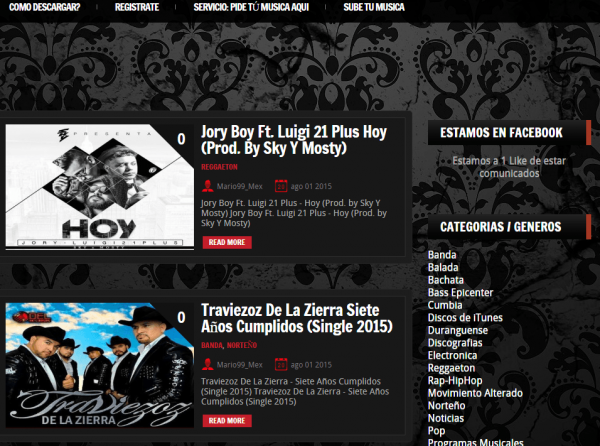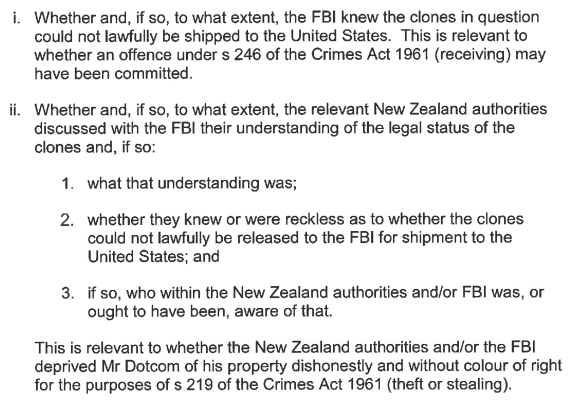Selling Piracy-Configured Media Players is Illegal, EU Court Rules
mercredi 26 avril 2017 à 12:17 Probably the biggest story in online piracy scene over the past 12 months has been the massive increase in popularity of piracy-configured set-top devices.
Probably the biggest story in online piracy scene over the past 12 months has been the massive increase in popularity of piracy-configured set-top devices.
Mostly running Android, these devices are often supplied with software such as the neutral Kodi platform augmented with third-party addons, each designed to receive the latest films, TV shows or live sports, with minimum input from the user.
One of perhaps hundreds of sites involved in these sales was Netherlands-based Filmspeler.nl (Movie Player), an online store that found itself targeted by Dutch anti-piracy group BREIN. Filmspeler’s owners felt that its pre-configured devices were legal, arguing that their sale did not amount to a “communication to the public” as determined by the EU Copyright Directive.
In 2015, the Dutch District Court referred the case to the EU Court of Justice. It was asked to consider whether it’s illegal to sell a product (in this case a media player) with pre-installed add-ons containing hyperlinks to websites from where copyrighted works such as movies, TV shows and live broadcasts are made available without copyright holders’ permission.
A year later, Advocate General (AG) Campos Sánchez-Bordona issued his recommendation to the Court.
Describing how Filmspeler owner Mr. Wullems knowingly added infringing add-ons to Kodi devices, with hyperlinks to content published by known ‘pirate’ sites, the AG added that Filmspeler advertised its media players as ways to watch content without paying. This, he said, amounted to a communication to the public and hence copyright infringement.
But while the AG’s opinion was important, it is the EU Court of Justice’s opinion that holds absolute legal weight. After months of deliberation it handed down its decision a few minutes ago and it’s bad news for purveyors of ‘pirate’ devices all around the EU.
In a long and complex ruling, the ECJ said that a media player with pre-installed addons, accessed through structured menus, grants users “direct access to the protected works published without the permission of the copyright owners” and “must be regarded as an act of communication to the public.”
That large numbers of people have bought these players was taken by the Court to mean that there are an “indeterminate number of potential viewers” involving a large number of people (the public).
On the crucial question of whether the copyright works were transmitted to a “new public”, the Court found that the audience for these devices was not something taken into account by the copyright holders when they first gave permission for their works to be distributed.
Referencing the earlier GS Media case, the ECJ placed emphasis on whether links were offered in the knowledge they were infringing and whether the subsequent communication to the public had a profit element.
“It is common ground that the sale of the ‘filmerspeler’ multimedia player was made in full knowledge of the fact that the add-ons containing hyperlinks pre-installed on that player gave access to works published illegally on the internet,” the decision reads.
“In addition, it cannot be disputed that the multimedia player is supplied with a view to making a profit, the price for the multimedia player being paid in particular to obtain direct access to protected works available on streaming websites without the consent of the copyright holders.
“Therefore, it is necessary to hold that the sale of such a multimedia player constitutes a ‘communication to the public’, within the meaning of Article 3(1) of Directive 2001/29.”
Having determined that such piracy-configured players can be considered infringing by EU member courts, the ECJ goes on to provide greater clarity on the status of copyrighted content streamed on the Internet without copyright holders’ permission.
The ECJ states that reproduction of content may only be exempt from reproduction rights when it fulfils five conditions:
– When the act is temporary
– When it’s transient or incidental
– When it’s an integral and essential part of a technological process
– When the sole purpose of that process is to enable a transmission in a network between third parties by an intermediary or a lawful use of a work or protected subject matter
– The act has no independent economic significance
Since copyrighted works are obtained from streaming websites without obtaining permission from copyright holders, the above standards are not completely met and no copyright exceptions are available. Streaming copyrighted content from an illicit source can therefore be considered illegal.
The Filmspeler case will now head back to the Dutch court but this decision is likely to echo all around Europe and have a notable and immediate effect on pending cases involving ‘pirate’ boxes and illicit streaming.
Update: The two key points from the decision, as published by the ECJ.
1. The concept of ‘communication to the public’, within the meaning of Article 3(1) of Directive 2001/29/EC of the European Parliament and of the Council of 22 May 2001 on the harmonisation of certain aspects of copyright and related rights in the information society, must be interpreted as covering the sale of a multimedia player, such as that at issue in the main proceedings, on which there are pre-installed add-ons, available on the internet, containing hyperlinks to websites — that are freely accessible to the public — on which copyright-protected works have been made available to the public without the consent of the right holders.
2. Article 5(1) and (5) of Directive 2001/29 must be interpreted as meaning that acts of temporary reproduction, on a multimedia player, such as that at issue in the main proceedings, of a copyright-protected work obtained by streaming from a website belonging to a third party offering that work without the consent of the copyright holder does not satisfy the conditions set out in those provisions.
Source: TF, for the latest info on copyright, file-sharing, torrent sites and ANONYMOUS VPN services.
 In many European countries it’s a mere formality to order local Internet providers to block access to pirate sites, but this is not the case in Mexico.
In many European countries it’s a mere formality to order local Internet providers to block access to pirate sites, but this is not the case in Mexico. 




